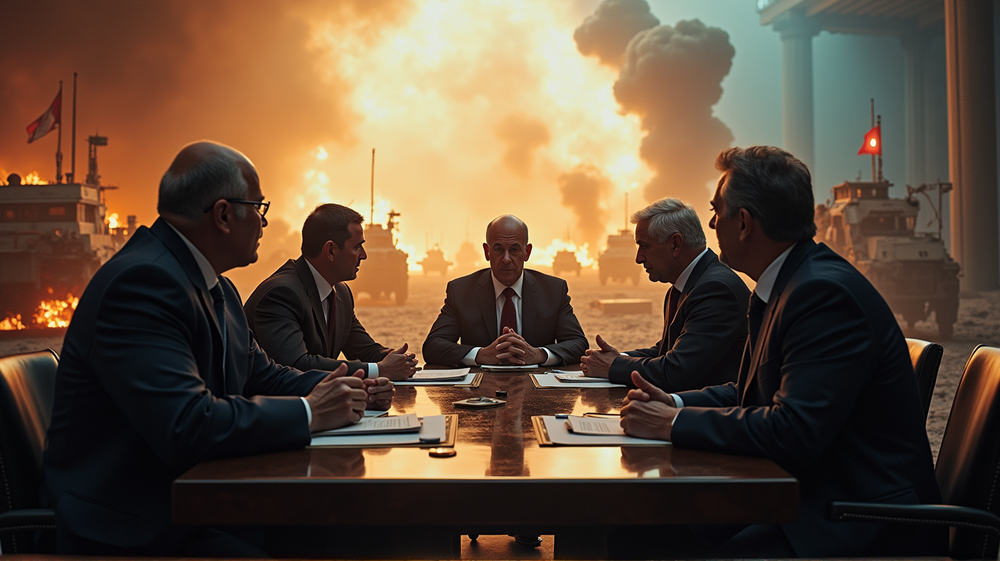In a series of dramatic developments, Israel launched airstrikes on Iran early Friday. The region, already on edge due to ongoing conflicts, now faces the potential for increased hostilities. The strikes, which Israel claims were aimed at Iran’s nuclear program, have already resulted in significant casualties and elicited stern international reactions.
A Plea for Calm
World leaders have quickly stepped into the fray, urging both Israel and Iran to practice restraint. President Trump took to Truth Social to emphasize the strength of U.S. military capabilities, although the U.S. denied involvement in the strikes. Trump’s statements underscored a pressing need for Iran to consider diplomatic opportunities over potential devastation. “Future strikes could be more intense,” he warned, adding gravity to his call for peace.
The U.K.’s Prime Minister, Kier Starmer, alongside France’s Jean-Noël Barrot, echoed similar sentiments, advocating for diplomatic solutions and a de-escalation of tensions. Their unified voices resonate in a world increasingly wary of another drawn-out conflict in the Middle East.
International Solidarity
From Europe to Asia, the response has been clear: de-escalation is paramount. Germany, a key player in international diplomacy, reiterated its support for Israel’s self-defense while stressing the importance of avoiding further destabilization. Their commitment to diplomacy signals hope for a peaceful resolution amidst rising tension.
Asia’s responses also highlighted concerns over regional stability. Malaysia condemned Israel’s actions outright, urging influential allies to exert pressure to halt aggression. Meanwhile, China posited itself as a potential mediator, extending an olive branch for peace efforts.
The Voice of Experience
The perspective from Middle East leaders, those most directly impacted, came as no surprise. Saudi Arabia, despite a complicated history with Iran, strongly opposed Israeli actions, labeling them a violation of international law. Similarly, the UAE and Qatar expressed concerns about the implications for both security and regional stability.
Turkey, long a critic of Israeli policies, called for an immediate cessation of aggression to prevent further suffering. Their message underscores a broader regional desire to sidestep additional bloodshed and toil.
Navigating a Minefield
The global community finds itself in a precarious position, advocating diplomacy over conflict. The United Nations highlighted the danger posed by recent developments, urging restraint amidst ongoing nuclear talks between Washington and Tehran.
European Union foreign policy chief, Kaja Kallas, deemed diplomacy the best route forward, a sentiment echoed by other global leaders hoping to prevent further escalation. Their collective resolve showcases the power of international collaboration in navigating complex geopolitical landscapes.
As the world holds its breath, the emphasis remains on a return to dialogue and negotiations, reminding us of the enduring importance of diplomacy in times of crisis.
According to CNBC, diplomatic channels and international solidarity remain the beacons guiding today’s leaders through one of the most volatile eras in Middle Eastern politics.












